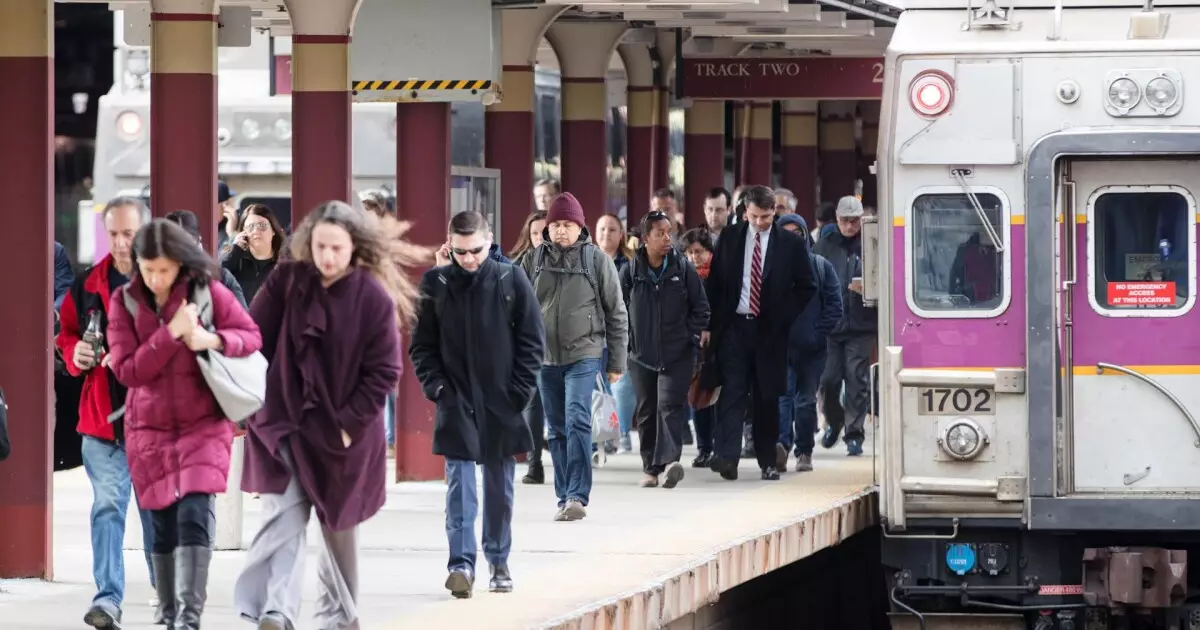Massachusetts has announced a substantial initiative to enhance its transportation infrastructure through the issuance of $490.7 million in municipal bonds. This strategic move signifies the state’s commitment to transforming its commuter rail services and addressing long-standing issues within the transportation sector. The bond offering is set to price on Wednesday, following a retail order period the previous day. Such financial maneuvers reflect not only immediate goals of infrastructure enhancement but also the overarching need for a sustainable transportation model in Massachusetts.
The Structure of the Bond Offering
The proposed bond sale comprises three distinct series: a $150 million revenue bond dedicated to rail enhancements, a $125 million series labeled as sustainability bonds, and $215.7 million in revenue refunding bonds. The significance of these offerings cannot be overstated, particularly the sustainability bonds, which are earmarked for the Massachusetts Bay Transportation Authority’s (MBTA) South Coast Rail Project. This ambitious project aims to restore commuter rail services between Boston and southeastern Massachusetts—a previously underserved region that historically lacked direct rail access to the urban core.
Phillip Eng, the MBTA’s General Manager and CEO, underscores the determination to advance the South Coast Rail Project with high standards for quality and safety. This commitment is essential, especially given the historical context of unreliable services and financial challenges that have plagued Massachusetts’ transportation network for decades.
Addressing Historical Inefficiencies
The South Coast Rail initiative is not merely a matter of restoring lost services; it represents part of a broader strategy to revitalize a cash-strapped transportation system that has been hindered by unreliable service and chronic funding deficits. These long-running issues have roots in various factors, including the financial strain imposed by past projects, like the infamous Big Dig, which stands as one of the most expensive highway projects in American history. The historical context is crucial here, as it reveals a pattern of challenges faced by the MBTA that must be overcome to establish a reliable transit system.
Recent developments, including declining post-pandemic ridership, compound these difficulties, creating a dire need for reform and revitalization within the organization. The South Coast Rail Project is estimated to cost around $990 million, with funding sourced from both commonwealth general obligation bonds and other municipal debt, emphasizing the collaborative effort needed to tackle transportation funding issues.
Concerns surrounding the operational efficiency of the subway, commonly referred to as the “T,” have catalyzed urgent legislative action. Massachusetts Governor Maura Healey has proactively established a transportation funding task force designed to formulate recommendations for a long-term financing strategy. This not only signifies a recognition of the financial turmoil facing the MBTA but also highlights a commitment to ensuring that Massachusetts’ transportation infrastructure can adequately serve its populace.
One of the immediate goals is to eradicate the problematic slow zones that currently impede transit efficiency, with a target completion by the end of this year. However, while these measures are promising, significant challenges loom, specifically the anticipated budget deficits that the MBTA is predicted to encounter. By fiscal year 2029, projections estimate a staggering shortfall nearing $900 million, raising pressing questions about the sustainability of any proposed funding resolutions.
In terms of financial oversight, the bonds have received high ratings, with S&P Global Ratings assigning a AAA rating, reflective of the commonwealth’s robust economy and sound debt service coverage. Similarly, the bonds are rated AAA by the Kroll Bond Rating Agency and Aa1 by Moody’s Ratings. Such ratings suggest a favorable assessment of Massachusetts’ long-term financial health and the bond covenants, instilling confidence in investors.
BofA Securities has taken the lead in managing this bond issue, with assistance from municipal advisor Omnicap and legal input from Locke Lord. This coalition of financial and legal expertise underscores the rigorous attention being paid to ensure the integrity and success of the bond offering.
The bond sale represents more than a financial transaction; it is part of a crucial initiative designed to modernize and enhance Massachusetts’ transportation infrastructure. Through effective management and sustainable funding strategies, the state aims to overcome historical inefficiencies and create a reliable, efficient public transit system that meets the needs of its residents. The road ahead may be challenging, but with a committed approach, Massachusetts stands to redefine its transportation landscape for generations to come.


Leave a Reply